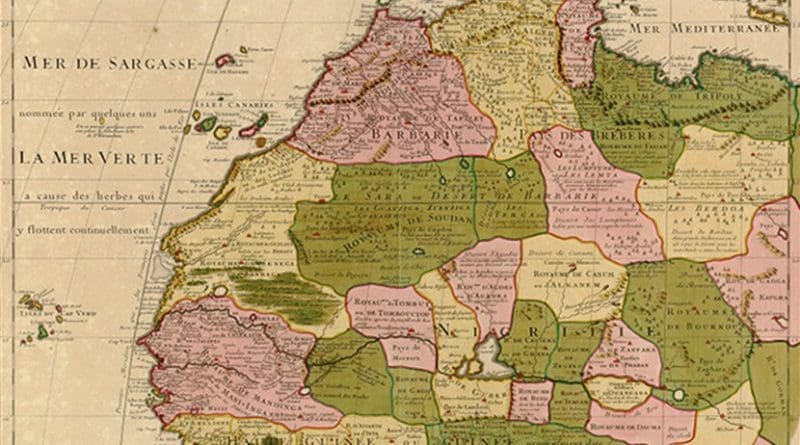The Maghreb In 2018: More Turmoil And No Democracy In Sight – Analysis
In 2018 the Maghreb does not look good at all and the hopes of its people to achieve change for democracy, good governance, accountability and rule of law are being dashed away. There is more of the same as in the past with the hope for a better tomorrow receding away inexorably. Democracy seems to be a luxury beyond people’s reach and so is good governance, for now rulers evoke the Islamist menace to favor harsh security measures which they make use of alongside to silence recalcitrant media voices and political critics and maintain the status quo.i
It is true, the Islamist menace is real, but diffuse, especially now that ISIS is gone and its canon fodder is free to go it alone as lone wolves. Even people in some countries like Morocco, Algeria and Tunisia are made to believe that they are better off with strong central governments as a result of this phantom menace. As a matter of fact, in Libya security, stability and peace of mind might be favored over bread which is itself favored over democracy and rule of law. The Libyan volcano that has erupted during the defunct Arab Spring and has not stopped, in the least, spewing lava and fumes obstructing the horizon and, what is more, the magma has not solidified yet and probably won’t for quite sometime in the future.
The Maghreb In The Throes Of Uncertainty
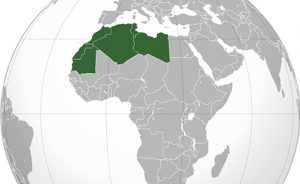
The Maghreb, more than ever, is in the throes of uncertainty about its identity, its political future and its economy. Is the Maghreb Amazigh, Arab or none or both? One thing is sure it doesn’t consider itself African because in the popular belief and, also, in that of the politicians who of course don’t show it, this part of Africa is white and thus close to Europe more, and to be African is to be black. So, the identity entanglement is not resolved.ii
Morocco and Algeria have officially recognized the Amazigh/Berber culture and language but it seems merely to pay lip service to the cultural cause of the Amazighs/Berbers people, no more. Libya, on the other hand does not recognize, in the least, its Amazighs/Berbers, it thinks of itself purely Arab and fully Muslim.
The most important and crucial issues of the region are, also, still up in the air. Women are, as ever, second to men, gender equality is but an empty slogan used to please the West. The women are not fully empowered bearing in mind that illiteracy is still high among females especially in the countryside. Patriarchy and tribalism plus faulty religious interpretation is keeping them under the control of men and society.
The youth have no better deal, they started the Arab Spring in Tunisia to put an end to gerontocracy rule and instead of bringing change they allowed Islamists to take over power and, as a result, there is zero change for them. The Maghreb does not like its youth recalcitrant and modernistic in thought and belief. It prefers them obedient, regimented, quiet and subservient to the establishment and omnipresent tradition and religion.
In the Maghreb, also, minorities are still repressed overtly or covertly and as such they still live in the closet. Gays and all LGBT are not welcome in public space. Worse for some people they are dangerous because they carry moral and clinical diseases and they have been “planted” in the world of Islam by the secular West to destroy the fabric of Muslim society. So they are a true danger not to say a real fifth column.
In the Maghreb poverty is still predominant in spite of the fact that some countries have benefited at some point in history from the oil bonanza. The distribution of wealth is unequal and as such the poor are getting poorer and the rich richer. So, basically in each country there are two countries cruising at different speeds and if subsidies are reduced or literally scraped turmoil will ensue undoubtedly, and it will happen in the long run.
The Maghreb Arab Union — MAU 0- (Union du Maghreb Arabe –UMA-), a regional organization for cooperation and development exists on paper only since 1998. It has not functioned ever because Morocco and Algeria are estranged as a result of the Sahara conflict. For Morocco’s monarch, UMA is deadiii and to prove that he is attempting to join other African regional organizations and is successfully taking Moroccan business and expertise to Africa.iv
The Maghreb is not in good shape, and 2018 does not look good for it especially in Algeria and Libya, this, however, does not mean that Morocco and Tunisia are better off, but they are in somewhat better disposition for now, not to forget, that the predominant situation might change overnight without prior warning in these two countries.
All in all, the Maghreb is not democratic and is still totalitarian, does not like is minorities, still oppresses its women and youth and its countries refuse to shake hands because of tribal feuds. So, it seems that it’s future is bleak, for now, and probably more so in 2018.
Algeria Is On The Verge Of Explosion
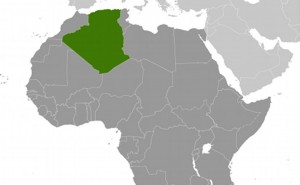
Algeria is in a bad shape, to say the least. Its oil revenues are next to nothing, it has resorted to printing paper money to pay its functionaries. As result, the inflation will run higher and higher and ultimately the country will have to resort to the very unpopular measures that it is resisting ferociously, so far, to safeguard its independence, mainly:
- Borrow money from world financial institutions:
- Call in the World Bank to restructure its finance and shore up its ailing economy;
- Cut popular subsidies;
- Put an end to state privileges given to senior officials;
- Open doors for international trade and business;
- Adopt a competitive stance in the economy; etc.
Besides the economy, the political system is in a dead end: the army is firmly in power behind an incapacitated president in a wheelchair and unable to talk or lead the country. But he is kept in place by the military to safeguard their political and economic interests and scare away the Islamists and dissuade them from returning to the political arena.
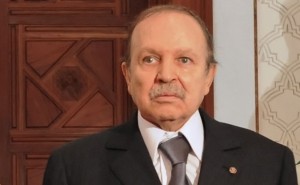
Algeria is bad as it is now and any unpopular action on the part of the government to restructure the economy will draw fire from the people and will probably lead to a delayed Algerian Spring.v
Algeria is in bad shape and cutting the huge present subsidies will bring the masses into the streets with the stark illusion that they would be able to restore these privileges, but, alas, economic reality will not allow that, in the least. Algeria’s present resources cannot allow the état providence any longer. People have to earn fully their daily bread and not get it half price from the government.
However, if Algeria cannot have bread, as it used to do, it would want to have democracy and that would mean the end of the rule of the military. Would the military accept that or come out in the open as a true dictatorship and face up to the people?
Any popular uprising could potentially, also, lead to a civil war anew and to more suffering for the people like in the past.
Morocco: Incremental Democracy Is No More
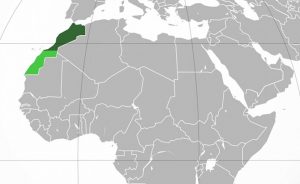
Mohammed VI is slowly but surely regaining control of all the prerogatives he gave up in the light of the Constitution of 2011. As of now he is the only maître à bord. The recalcitrant press has been muzzled and economically stifled and journalists put in prison or pushed to leave the country if they refuse to toe the official line.
Political dissent has been repressed harshly a case in point is the Hirak of the Rif that had been dealt with violently and its leadership imprisoned with rumors of torture. Another uprising is slowly making its way to the surface in the eastern city of Jerrada, once upon the time the capital of coal mining in the country. Already the perss is dubbing it the Hirak of Jerrada. The two uprisings are duly taking place in areas totally neglected by the central government and do belong to the Morocco of Despair (the periphery) as opposed to the nursed and rich Morocco of the Golden Traingle (the center: the triangle of Agadir, Tangier and Fes.)
The uprising of the Rif is probably the most serious crisis that the monarchy had to grapple with since the Arab Spring turmoil. It took place in area that has been traditionally inamicable to the Makhzen, in almost a century.
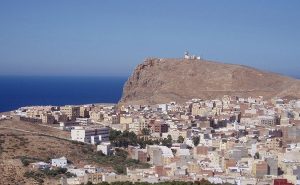
The crisis of the Rif has shown to the world that Morocco is indeed two Moroccos: one rich (the center) and one poor (the periphery) or to put it in other words: Morocco of the Golden Triangle made of the coastal cities and the rich plains and the Morocco of Despair made of the mountainous areas and arid lands.
In spite of the above, the monarchy remains popular among the people because it is the symbol of national unity past and present.
In reaction to the Hirak grievances, the monarch has launched an accountability campaign to cleanse the administration from sluggish bureaucrats. So far, many officials have either been fired or forced to go in retirement, but none tried.vi
Politically speaking the monarch has returned the country to The African Union after several years and is even trying to join other regional organizations to chuck out the Polisario Front from this continent.
On the economic front, Mohammed VI has been successful in opening the African markets to Moroccan business: banks, insurance, telecom, power, aviation, energy, mining, investment, building , etc. and signing hundred of trade agreements with many governments.
This Moroccan economic onslaught on Black Africa has four salient objectives:
- Serve a springboard to Moroccan business to go continental and project Moroccan economic might and expertise;
- Serve as a beachhead for European and American multinationals based in Morocco;
- Serve Moroccan national interests in Western Sahara and isolate, by so doing, the Polisario and its staunch protector and bloodline: Algeria; and
- Serve Moroccan political interests in the continent and spread Moroccan Islam, known to be soft and Sufi, to fight extremism.
Mohammed VI has been very nimble in dealing with Islamism since the advent of the Arab uprisings in 2011, thanks to the Constitution of 2011, he allowed the flagship of Moroccan Islamists, the moderate Parti du Développement et Justice –PJD- to lead the government quietening the critics of the monarchy and by so doing giving the coup de grâce to the 20 Février Moroccan Arab Spring movement.
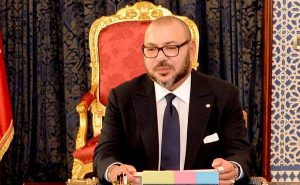
In 2017, the Islamists won again the general elections and though they had more seats than before, yet they were on the wane internationally. Taking note of this important element the monarch got rid of the vociferous and mercurial head of the PJD, Benkirane and replaced him by the amenable, quiet and composed shrink Al Othmani as head of the government in which Akhennouch, a close friend of the king played a major part. So, the Islamists lead the government, but the palace rules the country, stronger than ever.
In the meantime, the king has successfully strengthened his role of amir al-mu’minin (Commander of the Faithful) nationally and internationally by creating the Imam Academy, with the mission to form moderates clerics for Morocco and the rest of the worldvii and, also, founding an association of African Ulemas to propagate moderate Islam in Africa and isolate Islamism.
Tunisia And The Phantom Menace Of Jihadism
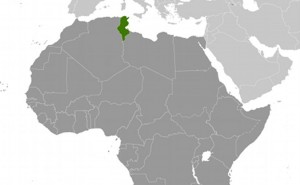
While Morocco and Algeria have both a strong security apparatus that defeated Islamism and created a strong centralized state, Tunisia is proving to be the weak part of the chain. The Arabs certainly owe Tunisia the inception of the Arab Spring that swept away dictatorships in no time and brought either theocracies to power or led civil wars and restlessness.
Tunisia’s uprising chased the dictator Ben Ali in no time, and brought the Islamist Ennahda to power by ballot boxes and got rid of them by the same means, but has been unable to get rid of the menace of violent Salafists who struck at the country several times creating tremors of fear that reached the heart of the country’s economy: tourism that is the most important money earner for Tunisia. Before the Arab Spring Tunisia was a big tourist attraction for Europe for several reasons, its proximity to the European continent, its cheap resort sites, its political stability and welcoming culture and people, but, alas, tourism, very much like capital, gets scared easily by chaos and restlessness.
After, the strong dictator Ben Ali, and the controversial and fundamentalist Ennahda under which Salafism grew in strength, extremism and determination, the actual party in power Nida’ Tounes, is not a homogeneous political structure, instead it looks like many tribes in one body with different agendas and worldly goals, one of these tribes being the supporters of Ben Ali, who certainly hold a grudge against democratic forces which they consider responsible for the actual weakness of the government, the country and the economy.

As if Tunisia did not have enough worries of its own, its proximity to restless Libya makes its life more difficult and adds to the atmosphere of uncertainty and instability in the country.
Tunisia stands alone and fragile in the Maghreb, whereas it would have certainly benefited greatly from a strong and healthy Maghreb Union, today it is isolated as a result of the ongoing political feud between Morocco and Algeria, it is condemned to navigate the politics of this region with much caution for fear to trigger the wrath of one of the two strong central countries of the region. This tight-rope walking is undoubtedly adding to its structural weakness immensely.
All in all, the future looks very uncertain for Tunisia at the time being and only an outburst of national pride and feeling of togetherness and help from the outside world can push forward this beautiful country that gave birth to the Arab Spring and Arab hope for democracy but got instability in return.
The Libyan Conundrum

Libya has ceased to exist as a single, strong and proud country with the death of its dictator Qaddafi. The Arab Spring brought only restlessness, war and insecurity.viii The country has not been able to unite even with the help of the UN that brokered an agreement in the coastal city of Skhirat, Morocco in 2015. The war lords of the country are: the Islamists based in Tripoli, heavily armed but lacking political wisdom, the secularists in the east led by a carefree retired marshal whose only concern is to obliterate Islamism and rule the country with a strong fist. As for the south it is tribalist in soul and spirit, using power for material benefits.
The blatant weakness of Libya has tempted ISIS, at its height to take control of the country to use as a base for terrorist attacks in Europe, but though this wish and dream has receded for the time being, yet the country is a base for clandestine immigration to the European Eldorado and its war lords certainly use this card to make much-needed money and scare continental Europe and especially Italy.
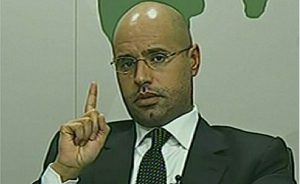
As of today, Libya is not a country but a loose confederation of tribes of different nature and objective:
- The Islamist entity that wants to rule the country by shari’a and create some sort of a caliphate, but since Islamism is on the wane internationally and the West is determined, under Trump, to put an end to it, its survival in such a hostile environment is almost impossible though it tries to put a modernist face to its project;
- The trigger-free secularists of the east are a pale copy of Arab military dictatorships that have been scratched from existence by the Arab Spring and undeniably such systems of government are a thing of the past and can in no way lead a nation in search of freedom and democracy.
- The materialistic tribes of the south: the tribes of the south seek material gain, no more no less. They once imprisoned Seif al-Islam Qaddafi and are propping him up now to become the next leader of the countryix and his chances are pretty high because most of the people regret the era of the dictator Qaddafi. True, he was harsh ruler with the opposition but he treated the people nicely, distributing to them directly the revenues of oil: free housing, free education, free health services and plenty of cash handouts and most importantly he guaranteed peace, security and order. If things go normally during the upcoming elections, the Qaddafis will return to power with the son of the late dictator Seif, educated in the West and open to democracy and state of law and order, but in the meantime Libya is still a volcano in activity spewing deadly lava around and it is a true failed state.x
The Maghreb And Europe
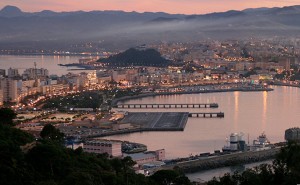
The Maghreb has been and still is the soft belly of Europe. If it catches cold, Europe sneezes and coughs and goes sick. Over the centuries the relations between Europe and the Maghreb had been intense and tense. In the 8th century an Amazigh/Berber general Tariq Ibnou Zayad, the man after whom Gibraltar is named, crossed the strait and installed Amazigh/Berber and Arab rule of Spain for seven centuries ending in 1492, at the fall of Granada as a result of the Reconquista. In return, Spain invaded Morocco and took the presidios of Ceuta and Mellilia which are still under Spanish control today. The Arabs also, colonized Scilia and left quite an imprint on its culture.
Starting in the 19th century, southern Europe (France, Spain and Italy) progressively colonized North Africa for resources and manpower and left quite an indelible imprint on the language, culture and way of life. Today most of the Maghreb is dependent on Europe for technology and culture.
Nevertheless, in spite of this dependence, Europe is not doing much to rub its democratic system of government on the Maghreb countries instead it only wants them to buy its technology and engage in trade and, most importantly, act as a gendarme to check unwanted African immigrants.
Europe is democratic and rich but also very selfish, it only cares about its well-being and in spite of its talk about democracy and human rights, yet it stands by the dictatorships in the area out of personal interest and rewarding trade and commercial ties.
You can follow Professor Mohamed Chtatou on Twitter: @Ayurinu
Endnotes:
i. https://themaghrebtimes.com/04/05/maghreb-splitting-headaches-treatment/
ii. http://www.eurasiareview.com/19072017-moroccan-identity-entanglement-analysis/
iii. https://www.moroccoworldnews.com/2017/02/208000/king-mohammed-vi-has-pronounced-maghreb-union-dead-long-live-africa/
iv. https://www.moroccoworldnews.com/2017/02/207675/king-mohammed-vi-takes-africa-storm/
v. https://intpolicydigest.org/2017/05/10/can-algeria-be-saved/
vi. https://www.moroccoworldnews.com/2017/10/232154/accountability-mon-amour-al-hoceima-king-mohammed-iv/
vii. https://themaghrebtimes.com/04/02/management-islamic-religion-morocco/
viii. http://www.eurasiareview.com/15052017-the-libyan-conundrum-modern-tribalism-at-work-analysis/
ix. https://themaghrebtimes.com/04/25/libya-probable-return-qaddafis-power/
x. https://www.eurasiareview.com/30042017-is-libya-a-de-facto-failed-state-analysis/

